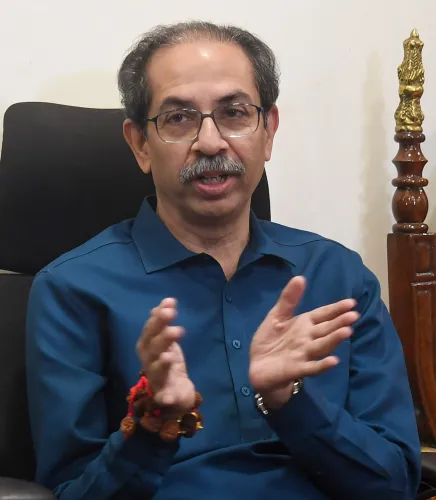Is the Salma Dam a 'Perfect Example' of India-Afghan Water Cooperation?

Synopsis
Key Takeaways
- The Salma Dam is a symbol of India-Afghanistan cooperation.
- India is ready to support Afghanistan’s water management efforts.
- Recent announcements from Afghanistan highlight a focus on local dam construction.
- Sustainable water management is crucial for Afghanistan's development.
- The Kunar River projects may impact regional geopolitics.
New Delhi, Oct 30 (NationPress) India emphasized its ongoing collaboration with Afghanistan on water issues, referring to the Salma Dam as a “prime example” of this enduring partnership between the two countries.
During a weekly media briefing in New Delhi, Ministry of External Affairs (MEA) spokesperson Randhir Jaiswal mentioned the recent visit of Afghanistan's Foreign Minister Mawlawi Amir Khan Muttaqi to India. He noted that the joint statement highlighted India’s commitment to assist Afghanistan in the sustainable management of water resources, including hydroelectric initiatives.
“We had the Afghan Foreign Minister visit India recently, and during that visit, we released a joint statement. This statement clearly states that India is prepared to support all of Afghanistan’s efforts aimed at the sustainable management of water resources, including hydroelectric projects,” Jaiswal explained when asked about potential funding for a dam in Kunar province.
“As you may know, there has been a longstanding history of cooperation on water issues between the two nations. The Salma Dam, for instance, exemplifies this cooperation and is now known as the India-Afghanistan friendship dam,” he added.
Jaiswal’s remarks follow Kabul’s announcement regarding plans to construct dams on the Kunar River “as soon as possible,” a development that could cause concern in Islamabad.
In a statement on X, the Taliban's Deputy Information Minister Muhajer Farahi remarked, “His Eminence Amir al-Mu'mineen, (referring to Taliban Supreme Leader Mawlawi Hibatullah Akhundzada), has instructed the Ministry of Water and Energy to commence the construction of dams on the Kunar River immediately and to finalize contracts with local companies, without waiting for foreign firms.”
The Chitral River, which is known as the Kunar River in Afghanistan, spans 480 kilometers in northern Pakistan and eastern Afghanistan. It originates from the Chiantar glacier, located at the border of Gilgit Baltistan and Chitral in Pakistan. Upon entering Afghanistan at Arandu, it takes on the name Kunar River, eventually merging with the Kabul River in Nangahar Province. This river system is fed by the melting glaciers and snow from the Hindu Kush mountains.
On October 10, India and Afghanistan reaffirmed the significance of sustainable water management and agreed to collaborate on hydroelectric projects to meet Kabul’s energy requirements.
The joint statement issued following discussions between External Affairs Minister (EAM) S Jaishankar and his Afghan counterpart Muttaqi stated, “Appreciating India’s support in the construction and upkeep of the India-Afghanistan Friendship Dam (Salma Dam) in Herat, both sides also underscored the importance of sustainable water management and agreed to collaborate on hydroelectric projects to address Afghanistan’s energy needs and bolster its agricultural development.”









